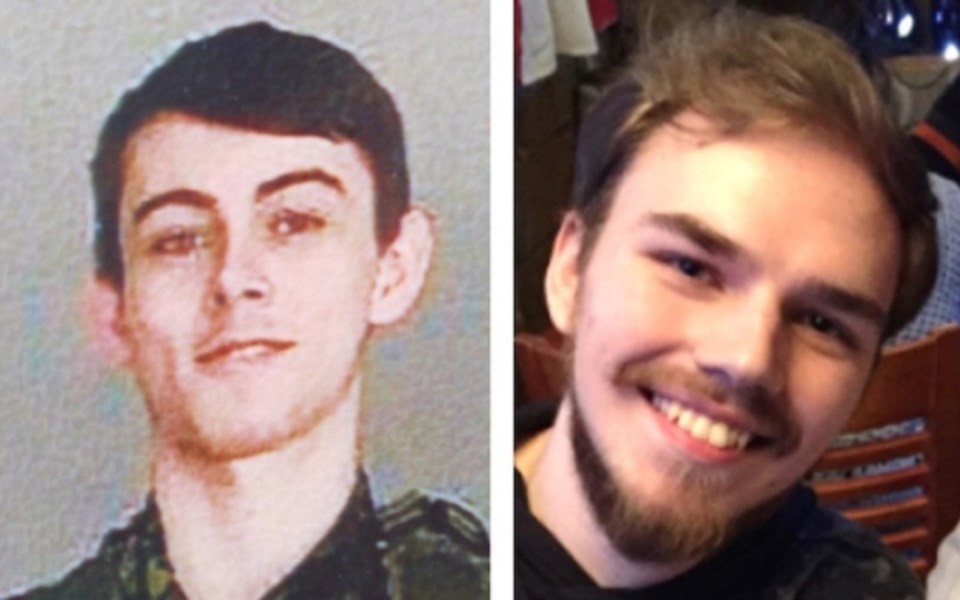Two Port Alberni teens suspected in three B.C. deaths have been found dead in Manitoba.
Assistant commissioner Jane MacLatchy, commanding officer of the Manitoba RCMP, said two bodies found in dense brush near the shoreline of the Nelson River are believed to be those of Kam McLeod and Bryer Schmegelsky. Both were 19.
They were found eight kilometers from a where a burned-out car connected with them was found earlier.
"I'm confident it's them," MacLatchy said. "To identify them officially and to be sure, we have to go to autopsy."
That will be done in Winnipeg on Thursday by a medical examiner.
She would not comment on the condition of the bodies or speak to injuries.
The pair led police on a cross-country chase since two bodies were found on the side of the Alaska Highway in northeastern B.C. Four days later, another body was found on Highway 37 near Dease Lake.
McLeod and Schmegelsky had been charged in one death and were suspects in two others.
RCMP assistant commissioner Kevin Hackett said in Surrey, B.C., "We believe they are in fact the individuals we were searching for."
The deaths of the suspects do not mean the homicide case is over, he said.
Hackett said the B.C. case remains open until all evidence is assessed to confirm investigative theories. That would include ruling out any other possible suspects.
That work moves forward in conjunction with the B.C prosecution service.
McLeod and Schmegelsky are also charged with second-degree murder in connection with the death of Leonard Dyck, who was found a few kilometres from the teens' burned-out pickup truck on Highway 37 near Dease Lake.
"We anticipated the charges were going to be laid," Hackett said. "There is significant evidence that links both crime scenes together."
He said there doesn't appear to be anything linking the victims.
"I am confidant there is no further risk to the public," he said.
"There are no other suspects that we're actively looking at."
Hackett said it "would be extremely difficult us for us to ascertain definitively what the motive was" in the killings.
McLeod and Schmegelsky were last seen July 22 in Gillam, Manitoba, where they torched and abandoned the vehicle they were last seen driving, sparking a two-week manhunt that brought in specialized police and the Canadian military.
Hackett said the pair likely chose the route across Canada – equal to the distance between London, UK and Moscow – to avoid people and maintain their freedom as long as possible.
Police appeared to be closing in the past few days after reporting finding items confirmed as belonging to the pair as well as a boat connected to them.
Police said they found the items on a Nelson River shoreline nine kilometers from where a burnt-out vehicle the suspects are believed to have used.
As a result, police brought in a dive team to search the area.
MacLatchy called the finds critical pieces of evidence allowing for further targeted searches that led to the bodies.
It was that information that led to deployment of a dive team, which searched an area 29 meters around the area where the boat was found.
"The search did not uncover any additional items linked to the suspects," police said.
Canada-wide warrants were issued two weeks for McLeod and Schmegelsky after they were charged with second-degree murder in connection with Dyck's death.
Hackett said Dyck's injuries are known, but out of respect for his family, there is no need to reveal them.
At first, police said the teens were missing.
The Port Alberni childhood friends are also suspects in the killings of American Chynna Deese and Australian Lucas Fowler. Their bodies were found along the Alaska Highway on July 15 near a van they had been travelling in.
No charges were announced in that investigation prior to the finding of the bodies.
Hackett said the Dyck, Deese and Fowler families were informed of the Manitoba findings.
He said those families, as well as the McLeod and Schmegelsky families, continue to receive support.
The pair was spotted in Saskatchewan and then Dyck's car was found torched near Gillam, Manitoba. A house-to-house search was undertaken before forces moved to nearby York Factory after an unconfirmed sighting of two men scavenging in the town dump.
The sighting led to a community lockdown and heavy search. A similar search was done around Gillam and police remain in the area.
MacLatchy said the terrain where the bodies were found is rough and difficult to search.
"It's a difficult place to find anybody," she said Very tough terrain. It's a huge area we're looking at.
MacLatchy thanked Canadians their vigilance and for sending tips.
"To the families of everyone affected by the series of events over the last few weeks, I know it has been so very difficult and I hope today's announcement can now begin to bring some closure," MacLatchy said.
Hackett said the manhunt crossed provinces and territories and affected people in both Canada and in other countries.
He thanked police across Canada and in the United States and Australia for assistance.
Hackett said the case has been a dynamic and evolving one. He said information has had to be checked and confirmed before being given to the public.
"With the help of the media, we were able to get information into the hands of the public very quickly," he said.




